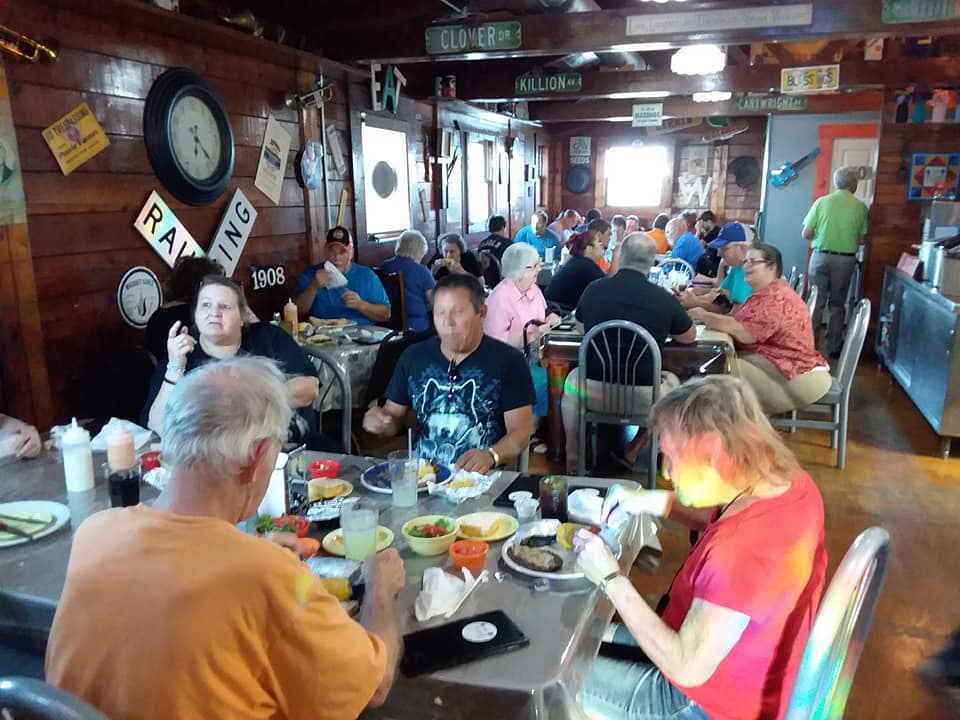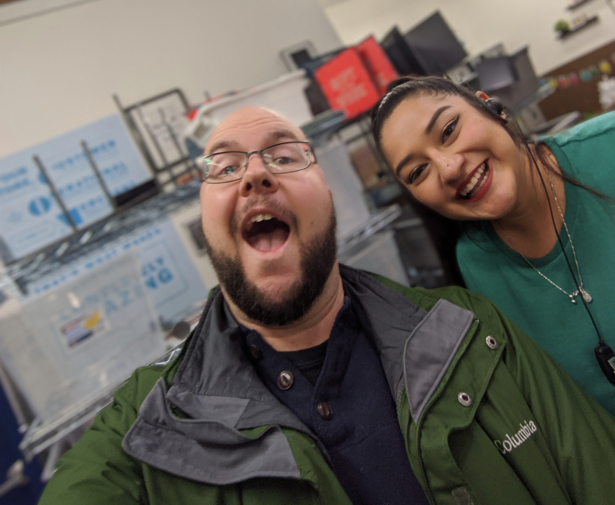
Appetizing Meals At Altruistic Prices
One woman’s long road to a unique charitable restaurant
When she was growing up, Carolyn Brown was taught to cook by her mother and grandmother. “We would help with everything,” she says. “You’d just cook a lot of food at one time.”
When she got older, Brown found herself with more food than her small family needed. “I would give the majority of the food I cooked away,” she says. “I kept telling my husband, we need a kitchen where we can cook food and people can come eat when they don’t have money for groceries. He would tell me I was nuts.”
But years later, Brown’s dream has become a reality—at The Kitchen Table, in Rochelle, Illinois, she charges customers whatever they care to pay, even if they can’t pay anything at all. But achieving her dream was anything but easy.
“We did actually check into putting a kitchen in our house, maybe in the basement, but the cost to get it certified was a little bit more astronomical than we had anticipated,” Brown told Good Turns recently. “So then I kept telling my husband, we should go look at the Klondike Building. It just sets out there, nobody’s ever done anything with it, it’s just getting worse and worse.”
“My husband said no at that time. But I continued to research and track down the owner, and that was a lengthy process in itself, just tracking down who you actually had to talk to just to get an appointment to see it,” Brown said, in part because the building had been foreclosed on, and was owned by a bank. Finally, in 2012, Brown got an appointment to look at it. She didn’t tell her husband until she was walking out the door on her way there. “He was like, ‘Where are you going?’ I told him, ‘I’m going to look at the old Klondike Building, you’re more than welcome to tag along if you like.’ Needless to say, he went with me.”
“We truly know what it’s like to want to go to a nice restaurant and be unable or unwilling to pay that kind of money”
The building was in worse shape than the couple expected, but Brown made an offer: $5,000. “The realtor thought that was really funny,” Brown said. “They were asking $58,000.” But the realtor said she’d let the bank know, and would get in touch with Brown if they were interested.
Brown figured she didn’t have a chance, but six months later the realtor got back in touch to see if she was still interested. Yes, Brown told her, but only for $5,000. “She says, ‘Well, I don’t know if he’ll go for that,'” Brown recalls. “I said, ‘Well, you called me this time!’ That was in January 2013, and then things progressed really fast.” The owner dropped the price to $13,000, but Brown once again offered $5,000. The price dropped again to $8,000. Brown stuck to her offer, pointing out that “it was going to cost us a chunk of change to get it back up to par.”
“I told the owner the majority of it has to be torn down because the roof has rotted and the weather has been in there for I don’t know how many years,” she said. “So he says, ‘Give me a quote on a tear-down.'” Brown got a couple of quotes, and that did the trick. “He really saw it my way, at that point.” In February 2013, Brown and her husband closed on the old Klondike building. The price? $4,194 and about $1,300 in property taxes. “It actually turned out to be a really good deal.”
Still, it would be almost three and a half more years before The Kitchen Table opened its doors on June 30, 2016. Not only was there a lot of work to be done, but Brown was adamant about not having any debt when the restaurant opened its door—not just on principle, but because she didn’t want anything to stand in the way of her charitable mission.
“I didn’t feel like we could open a place such as what I wanted and have a mortgage or some sort of loan against it, because then you truly have to worry about who’s paying what and how many people are coming in, and that’s not what I wanted it to be,” she says. “I wanted it to be a place where anybody and everybody could come in if they found themselves in a shortfall, they could come eat with us. They could pay what they could afford to pay.”
And that’s exactly how the restaurant works. Guests order from a full menu, and pay what they can afford to, whether it’s the prices on the menu, nothing at all, or more than the prices listed. And donations are tax-deductible: the restaurant is a 501(c)(3) nonprofit.
“We truly know what it’s like to want to go to a nice restaurant and be unable or unwilling to pay that kind of money. I love going to Red Lobster, and we don’t go very often ourselves,” Brown says. “Everybody deserves the opportunity to go out to eat at a decent restaurant and have it not cost them an arm and a leg to go there.”
Even running a restaurant, Brown still works at her job as a tax accountant. “It’s overwhelming sometimes,” she says, “but we have some good volunteers in place now.” Finding enough people to staff the all-volunteer restaurant was an unexpected challenge, Brown reports. “I really thought we wouldn’t have any issues, because when I grew up you just volunteered, it was just part of life. But that’s not the case anymore. We have a really nice core group of volunteers now, so that helps, but it’s still a lot of work when we’re there.”
“The way the whole thing works is really cool, because if you’re there for a dinner service, we have people who truly need us. There are people that don’t get to go out to eat ever. We provide them with food that they may not necessarily ever get to eat, because they can’t afford it, or they just don’t go to a restaurant like that. But then we also have the people who really appreciate what we’re doing and enjoy the food and are able to make a donation to help pay it forward for those that cannot. Some people come to eat and can’t afford to make a donation, but just pay for their meals.”
“It’s really nice, because I feel like I’m doing what I’m supposed to be doing,” Brown says. “We help a lot of people. And we have a good time at it.” What better recipe for a good turn could there be?
Posted May 13, 2019





